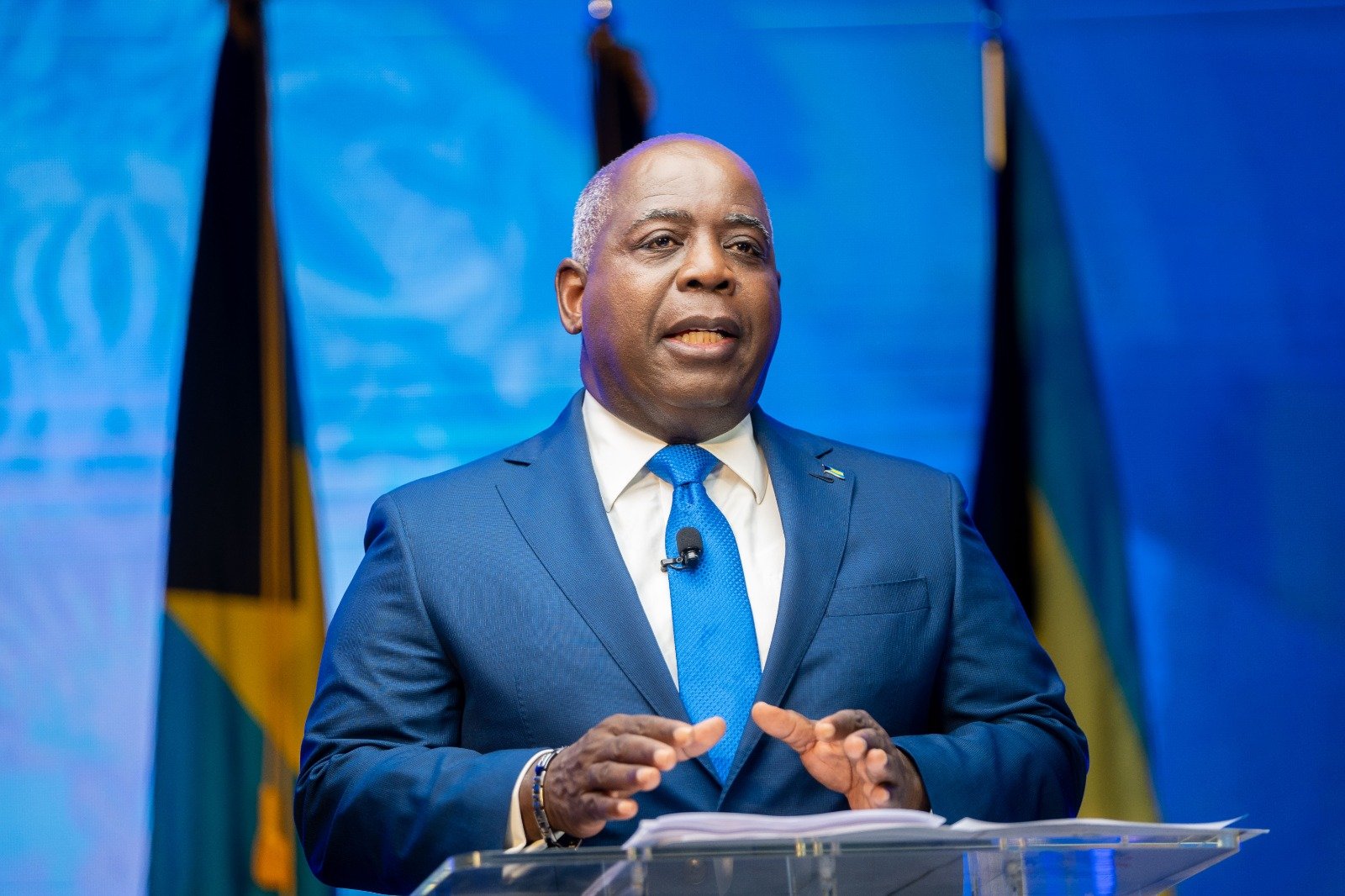-
Minimum wage raised to $260
-
Progress on new hospital for NP
-
38 items added to price control list
NASSAU, BAHAMAS — Prime Minister Philp Davis yesterday acknowledged the country was facing crises across multiple sectors as he announced relief measures to help Bahamians shoulder the rising cost of living.
He said his administration had inherited “an economic crisis, a fiscal crisis, an education crisis, and a health crisis”.
He described the crime as a chronic issue that could not be resolved overnight, adding officials are pushing hard for immediate advances, “because we need to make people safer, now”.
Davis said the economy is finally moving in the right direction from the verge of collapse when his administration took office.
He announced an increase in the national minimum wage from $210 to $260 per week that will be retroactive for public service workers from July of this year. The increase will not take effect for the private sector until January 2023.
During his address, he applauded Bahamian pride, resilience, and accomplishments throughout the trying times following Hurricane Dorian, the pandemic, and inflation exacerbated by the war between Russia and Ukraine.
He said getting Bahamians back to work was the top priority.
“Despite how hard these problems are, despite how intractable they may seem, I know that if we come together, we can create real change.”
“[…] Just one year into our term, we have more than one billion dollars of new investments in the pipeline – projects which will create thousands of new jobs across our islands.”
The prime minister pointed to significant arrears paid off to Bahamian businesses owed money from the government, a move that “injected over $100 million into our local economy and rescued many businesses from bankruptcy”.
He underscored the government’s efforts to cut import duties on dozens of food items, including many fruits and vegetables, hire new price control inspectors, increase funding for social assistance by 50 percent compared to pre-pandemic levels, and provide substantial support to successful, church-led local feeding programs, among other initiatives.
Davis said 38 new items will be included in price controls, including diapers, and food like chicken, eggs, bread, bananas, apples, oranges, broccoli, onions, and potatoes.
“These items are being added for at least a six-month period, at which point we will review and evaluate the impact on businesses and consumers,” he said.
“We are also reducing the profit margin on price-controlled drugs, providing additional relief to Bahamians.”
Davis emphasized his government’s focus on investing in young Bahamians and entrepreneurs by promoting financial literacy and expanding access to technology.
He said the government will invest more than $250 million in Bahamian-owned businesses this term.
As for healthcare, Davis outlined plans to recruit and train additional healthcare professionals as well as upgrade medical infrastructure.
He said the public could expect stakeholders to break ground on a new $200 million hospital in Grand Bahama by the end of the year.
Davis also announced officials have made “major progress” on securing both the land and the resources for a new hospital in New Providence.
“Our capital has long needed an additional hospital to keep up with expanding healthcare needs,” he said.
The new Revenue Enhancement Unit is targeting some $1 billion owed to the government in tax arrears, he said.
The Prime Minister addressed the Bahamas Power & Light (BPL) increases, reiterating the government’s decision to put off the additional costs until the present fall season to lessen the burden on consumers due to lower usage.
He pointed to several ways BPL is working to reduce the impact of the increase including, VAT exemptions and plans for a 60-Megawatt solar farm in the capital.
During the address, Davis reiterated that $6 million was set aside for defense force vessel investments.
He reiterated his stance on the country’s decision not to sign a declaration on regional migration at the Summit of the Americas earlier this year, which included language that countries support and host undocumented migrants.
“We did not sign this declaration […] We need to devote Bahamian resources to solving Bahamian problems,” he said.






